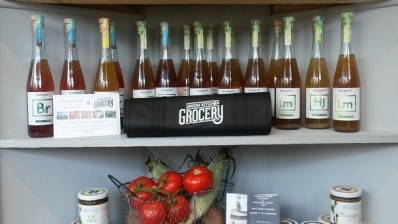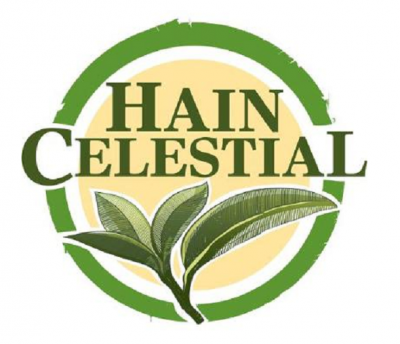Spotlighting the multiple definitions of ‘local’ can help drive sales, Dona Chai founder says

“Local is kind of a funny word” that can be interpreted several ways, and businesses that use it must clearly define what it means to them and their consumers so no one is misled, said Amy Rothstein, who founded Brooklyn, NY, based Dona Chai two years ago.
She explained that for her chai tea concentrate, which is made with fresh-pressed ginger, the term local references the product’s production, rather than the origin of the ingredients.
“Our ingredients are not grown here. They are grown in countries across the world, but for me and Dona Chai, ‘local’ means we will produce the chai tea concentrate ourselves – we will not outsource production,” she said.
“It also means we will shorten our supply chain any way we can. So, we get our spices from a company that works directly with farmers instead of going through a guy who goes through a guy who get spices from a warehouse in New Jersey,” she said.
Playing up this definition of local has helped the startup find placement and distribution at other Brooklyn-based companies, such as high-end coffee shops and retailers, including the Whole Foods stores in New York City and soon the surrounding region.
But as the company continues to expand, the way it defines local likely also will need to expand and evolve, Rothstein acknowledges.
“One thing it might come to mean is opening production hubs in different cities,” she suggested. That way the company could still claim the concentrate is brewed locally.
It also might mean playing up adjacent values associated with local, such as the common consumer understanding that local also equals “small, artisanal companies that might have an interest in design or lifestyle and a higher interest in quality than a larger corporation might have,” she said.
Both of these expanded interpretations of ‘local’ fit nicely with Rothstein’s plans and other values for her young company.
Small batch is easier at local level
For example, establishing small production sites across the nation as Dona Chai expands would allow Rothstein to continue brewing the tea in small batches.
Currently, the company brews the chai tea concentrate in 50 gallon batches, which Rothstein acknowledges sound big, but is not when compared to large-scale, mass production.
She prefers small batch brewing because it gives her more control over the quality of the final product.
“When I develop or adjust a recipe, I do it at my house in four to eight cup batches,” but that recipe doesn’t scale up perfectly to 50 gallons, she said. “I don’t think cooking is strictly mathematical,” and keeping batches as small as possible helps account for differences in scaling, she added.
Dona Chai also benefits from small batch production because she slow steeps her chai tea to a high concentration instead of brewing it at regular strength and then boiling it down to a concentration.
“I found when you reduce or boil down the tea into a concentrate, the depth of flavor gets lost. So, slow-steeping allows us to create a strong enough flavor to be a concentrate, but still maintain a high quality,” she said.
Building a lifestyle brand on top of ‘local’
The second strategy of broadening the term local to describe a lifestyle also fits well with Rothstein’s goal of expanding her brand beyond just tea, she said.
“I want to overlap in design and lifestyle as well as food and I think there is a market opportunity for that,” Rothstein said, pointing to blogs that focus on design, lifestyle and food.
“One thing we are doing is I will work with a local ceramic artist to make us custom Dona Chai tea cups,” which will expand the brand, she said.
She also notes active social media and web presence is another way to develop a lifestyle brand. For example, she posts recipes using her chai, and plans to use images of bowls and cups to give consumers more reasons than tea to visit her company’s Instagram feed and to illustrate the brand’s versatility.
To make these big dreams come true, Rothstein realizes she needs to better organize her company so that it can scale and that she needs to develop new ways of working with larger retailers.
She explained that she is more comfortable walking into stores and chatting with employees than with creating formal proposals and going through the bureaucratic steps that often are required at bigger accounts.
That said, her strategy of reaching out and networking in person is how she landed in Whole Foods two years ago.
With that in mind, she plans to hit the pavement in Washington, DC, in the New Year to hopefully expand her distribution into a new region that is still close enough to her home base to count as local – even with some of the narrowest definitions.

















